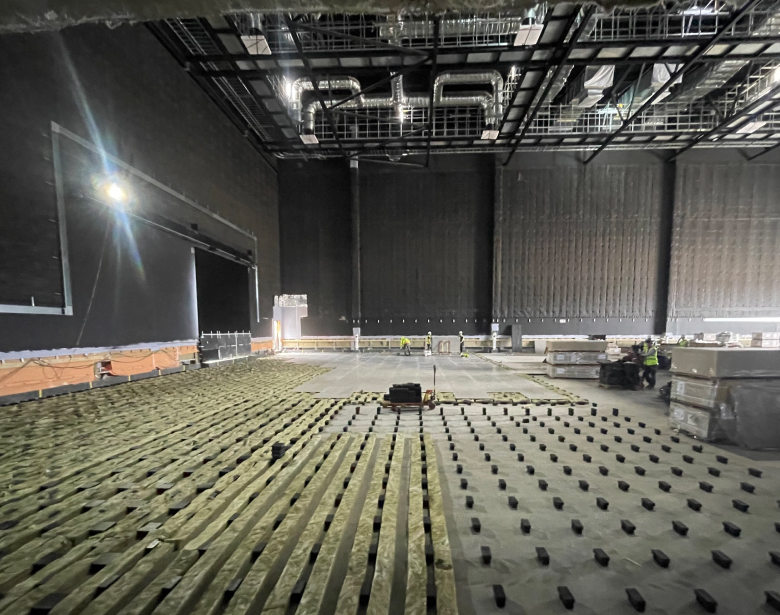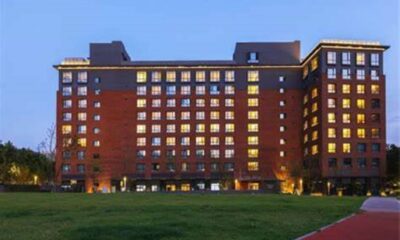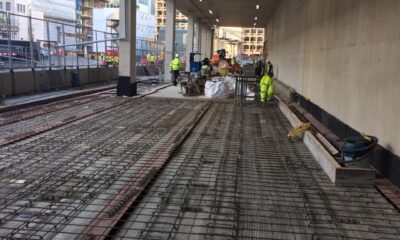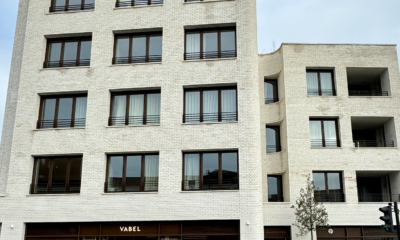Farrat have worked on numerous hotel projects across Europe and Asia supporting structural engineers with specialist technical advice resulting in the design and supply of a series of steelwork isolation pads and acoustic vibration solutions specifically developed to prevent construction noise travelling through the structure and disturbing hotel guests. We have also used our STRUKTRA™ thermal plates within the construction of swimming pools in hotels to thermally separate structural connections preventing heat loss in the building envelope.
Acoustic bearings, washers and bushes are manufactured inhouse and isolation materials can be designed and installed to make the classiest of dance or studio floors as displayed at Claridge’s Mayfair Hotel.

Key acoustic isolation, vibration and thermal transfer considerations when developing a hotel
Acoustic isolation is an important consideration when building hotels, as it can significantly impact the comfort and quality of the guest experience. Here are some factors to consider:
Building materials: The materials used in construction can have a significant impact on acoustic isolation. Using materials with good sound-absorbing properties, such as mineral wool insulation or acoustic ceiling tiles, can help reduce noise transfer between rooms and floors.
Room layout: The layout of the hotel rooms can also impact acoustic isolation. For example, placing rooms with shared walls back-to-back can help reduce noise transfer between them.
HVAC systems: The heating, ventilation, and air conditioning (HVAC) system can also affect acoustic isolation. Properly designed and installed HVAC systems can help reduce noise transfer through ductwork and ventilation openings.
Windows and doors: The design and quality of windows and doors can also impact acoustic isolation. Using double or triple-pane windows and doors with good sealing can help reduce noise transfer from outside sources, such as traffic or nearby businesses.
Soundproofing: In addition to building materials, specialised soundproofing techniques can also be employed to further enhance acoustic isolation.
Acoustic isolation: Good acoustic isolation is crucial to ensuring a comfortable and peaceful environment for hotel guests. This can be achieved through proper design of walls, floors, and ceilings, as well as the use of sound-absorbing materials such as mineral wool insulation or acoustic ceiling tiles. Room layout, HVAC systems, and window and door design can also impact acoustic isolation.
Vibration control: Vibration control is important to prevent noise and disturbance caused by mechanical systems and human activity. This can be achieved through proper design and installation of HVAC systems, elevators, and plumbing, as well as the use of vibration isolation materials such as rubber pads or resilient mounts.
Thermal transfer management: Proper management of thermal transfer is essential to ensure that the hotel is energy-efficient and comfortable for guests. This can be achieved through the use of insulation, considered window and door design, but also careful consideration to steel-to-steel, steel-to-concrete and concrete-to-concrete connections for façade’s and balconies.







